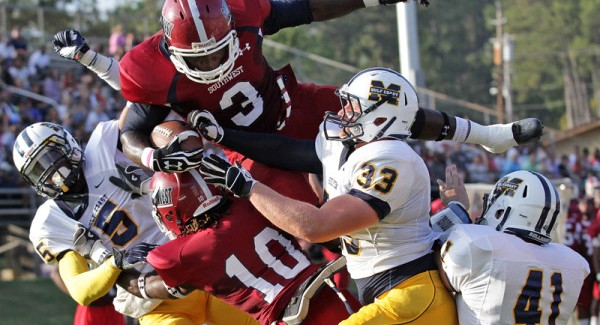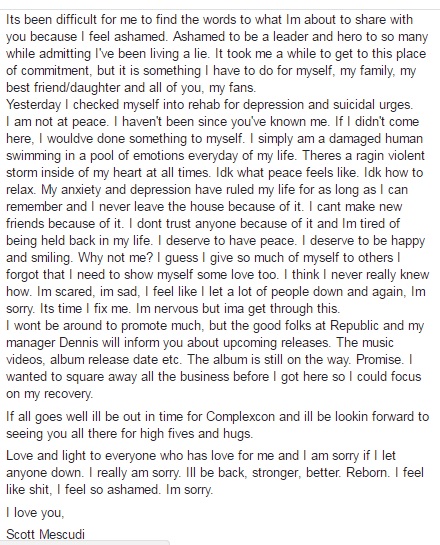According to the Substance Abuse and Mental Health Services Administration (SAMHSA), nearly 1 in 5 Americans suffer from mental illness annually (depression, bipolar disorder, or schizophrenia---to name a few). Despite its relative commonality among all genders, the conversation surrounding mental health in male culture has only recently begun, and still carries much of the same stigma.

More frequently, male celebrities have begun to “come out of the closet” in terms of their mental health. Recently, artist Scott Mescudi (also known as Kid Cudi) was admitted into a mental facility for depression and suicidal thoughts. After Cudi’s admission was extremely well-received and supported by his fans, a question was posed for me. What exactly is keeping other young people, specifically young men, from being open about their own struggles with mental illness?
At first, I explored the possibility of merely living in a neuronormative society--or a society which privileges certain mental states as being ideal, and disadvantages anyone outside of the neurotypical spectrum. A good example of this is in the workforce. Often times we hire people based on their ability to have successful face-to-face interactions, regardless of whether or not this is relevant to the job itself. This would be an example of neuro normativity, as it privileges those who are able to literally “put on a good face.” Such an environment fosters animosity towards people who are outside of this social script, and therefore may prevent them from wanting to speak out about it in avoidance of losing friends or jobs.
But seeing as I was exploring the stigmatism of mental health through the lens of celebrities, this explanation seemed inappropriate as they already had been welcomed graciously into society and fame. This led me to believe that perhaps it was less about men admitting that they struggle with mental health, and more about seeking help for it.
This is when I first thought of mental health in relation to sports. In many ways, American culture is sports culture. In sports, competition is cherished and linked to both success and masculinity. It creates the winning/losing dichotomy that gives leeway for people to assume that if you seek help, you are losing your own battle with mental health. More and more the competitive nature of sports has begun to undermine the cooperative goals and values of teamwork.
This is when I first thought of mental health in relation to sports. In many ways, American culture is sports culture. In sports, competition is cherished and linked to both success and masculinity. It creates the winning/losing dichotomy that gives leeway for people to assume that if you seek help, you are losing your own battle with mental health. More and more the competitive nature of sports has begun to undermine the cooperative goals and values of teamwork.
It also limits the chances of young men seeking help for their mental illness. Seeking help, not just in sports, is often linked to a loss of masculinity. Because men are provided the role of the protector/provider, they may equate admitting they need help with admitting they have failed their role. The conception of the strong man weakens his chances of seeking help in healthy and productive ways, and increases his chance of lashing out aggressively or destructively. According to the American Psychological Association, “women with anxiety disorders are more likely to internalize emotions, which typically results in withdrawal, loneliness and depression. Men, on the other hand, are more likely to externalize emotions, which leads to aggressive, impulsive, coercive and non-compliant behavior, according to the study.”
So what is the damage from this externalization of emotion in men? And how does the lack of help sought contribute to a cycle of violent and aggressive tendencies among males? If anything, it has become clear that it in order for change to occur it becomes vital for more and more men in the public eye, like Mescudi, to not only be open about their experiences with mental illness, but to be public about the fact that they are receiving help for it.




